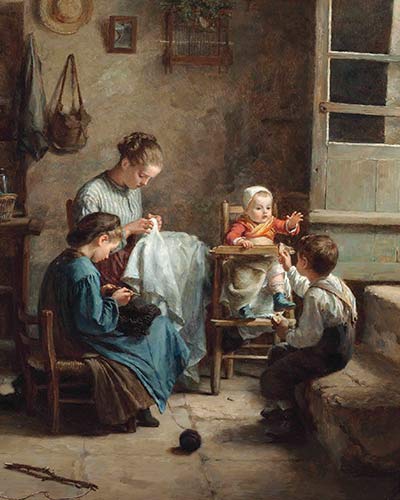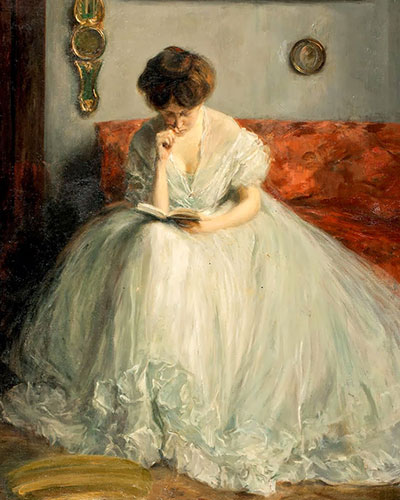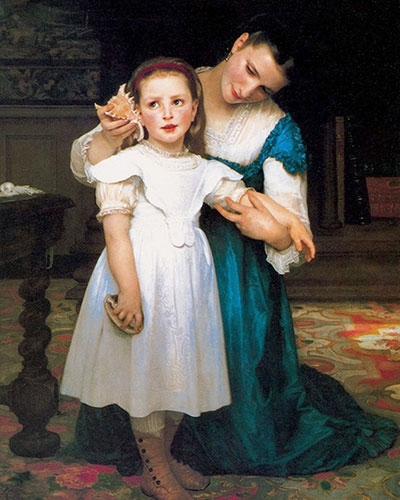A recent TIME article looked at how valedictorians generally aren’t overwhelmingly successful in life. In Wondering What Happened to Your Class Valedictorian? Not Much, Research Shows, Eric Barker writes that valedictorians rarely “go on to change the world, run the world, or impress the world.” He does allow that they “are reliable, consistent, and well-adjusted, and by all measures the majority have good lives.” One could write an entire post that quibbles with his definitions of success, but that’s not the point of this post so I’ll let it go.
I was co-valedictorian of my high school class of 150. I had a 4.0 GPA back when they were rare before grade inflation and the a-trophy-for-everyone syndrome took over. I also had a well-rounded high school experience with four years in marching band, concert band, choir, and chorale. There were many quotes in this article that described my high school experience.
- “Grades are, however, an excellent predictor of self-discipline, conscientiousness, and the ability to comply with rules.”
- “Many of the valedictorians admitted to not being the smartest kid in class, just the hardest worker.”
- “School has clear rules. Life often doesn’t. When there’s no clear path to follow, academic high achievers break down.”
After high school, I earned a B.A. in elementary education from Michigan State University and graduated Summa Cum Laude from the MSU Honors College. While at MSU, I was part of a selective College of Education track called Academic Learning with a focus on developing curriculum. I was heavily involved on campus as well. I was president of my sorority (twice). I was president of the education honor society. I was in Tower Guard (President) and Mortar Board. I was co-chair of the university homecoming committee. I was a Greek Week co-chair. I was named one of the top 20 seniors at Michigan State University. I missed Phi Beta Kappa by a math class that I dropped. I was involved and a leader.
Bottom line? I was skilled at achieving in the system. I thrived in the system.
After graduating into a terrible job market (approximately 1,000 applicants for each teaching job), I taught grades one through five in private, Christian, and charter schools, usually places with an emphasis on academics, structure, etc. My classrooms were organized and efficient. I was a firm but fair teacher who ran her classroom as a benevolent dictatorship. I had high expectations for behavior and learning that brought about strong results. For example, the last year I taught was at a brand new charter school. My principal said he had never seen any teacher move so many low-achieving children over the 50th percentile in one year. I was almost universally well-liked by parents and students. Not in every instance, but almost. I loved my students and truly wanted a great education for them.
However, after teaching for a number of years and completing part of my masters degree, I left teaching. A lot of it was burnout and some of it was I found the teaching profession to be incredibly stifling.
I will be the first to admit that, like many valedictorians, I floundered as an adult just as the quote from the magazine indicated. I was adept at performing in the system, but I was not prepared for the lack of a clear path after college. While I had thrived in a structured academic environment, I struggled when life was not mapped out clearly. My job path was crooked and filled with many false starts and stops.
I write all that not in an attempt to impress you with my credentials, but to demonstrate that I’ve been the super high-achieving student and was totally sold out on following the system to success.
I know that path.
And I’m writing to tell you that following that path might work well for some people and it may have worked well in the past, but it isn’t something I would recommend to anyone. It isn’t one I would recommend moving forward.
I’m not writing this post primarily for parents who are already convinced that homeschooling is the way to go. I’m writing it for the parents who are scared to death to homeschool or, especially, take a more relaxed homeschooling approach. Parents who are scared to death that if their child doesn’t tick off all the academic and extra-curricular boxes and graduate high in their class that they will end up living in a cardboard box under a bridge.
There is another way and it is increasingly important to consider that other way.
Rejecting The Education System I Excelled In
So how does someone who navigated the system so well as a student and worked in the system as a professional end up basically ditching that very system for her own child?
How does someone know before she even has a child that she wouldn’t want her child in her own school or classroom?
For one thing, the system has changed so much since I graduated. I’m not convinced that following in my valedictorian path would do Caroline much good, even if she was inclined that way (which she absolutely is not). More and more kids may be graduating with 4.0 and higher GPAs, but they lack higher level thinking skills. Teaching to the test the past twenty years has destroyed a generation of students to the point they now need their parents to help them at college and even attend their job interviews.
The cost of higher education is absolutely ridiculous. I refuse to see my daughter saddled with debt to start her life. If the system requires her to start off practically bankrupt, then we’re not participating.
The world has changed. I was an early Gen Xer. Because I became a mother much later in life than I expected, my daughter is a part of Gen Z. The world I prepared for and graduated into no longer exists. I graduated at the beginning of the end of the “go to college and be set for life” ideal. That world doesn’t exist for most people now and it certainly will not exist when my daughter is 20 or 35 or 50.
But perhaps even more importantly is my next point.
My Daughter Changed Me and My Education Paradigm
My daughter completely rocked my world. She rocked my parenting paradigm. She rocked my understanding of what it means to learn and what that can and should look like. The fact that she’s a visual-spatial learner was hard for me to wrap my head around. (That child in the cartoon? That’s my child! Drawing, dress up, building, puzzles, etc.)
My daughter opened my eyes to how bankrupt and ineffective our educational system is today for so many kids who will never be able to successfully navigate and excel in the system.
I had to rethink everything I thought I knew about education, school, and learning. The paradigm I grew up in and excelled in was never going to be an effective option for her. Much of this website is about my journey in parenting and homeschooling a gifted/2e child who nearly drove me nuts because what I believed should be effective was pretty much the opposite of what she needed.
And so as I was forced out of my comfort zone both as a person and a parent, I realized that I no longer believed in the paradigm I had learned in and worked in for the better part of forty plus years.
- My definition of education changed.
- My thoughts about learning changed.
- My thoughts about homeschooling versus traditional classrooms changed.
- My thoughts about how to prepare my child for a future no one can really imagine changed.
What Does It Mean To Be Educated?
So what does it mean to educate our children? There are five things I believe will make my daughter educated.
- One, a comprehensive worldview that enables her to make sense of the world spiritually, emotionally, and intellectually.
- Two, an understanding of who she is including her strengths, weaknesses, and unique gifts.
- Three, the ability to learn effectively and carry a natural curiosity into adult life.
- Four, a problem-solving outlook on life.
- Five, the ability to understand and work with others.
In my mind, those are the keys to success whether it is spiritual, personal, or professional.
And none of them require a school.
Can a Well-Rounded Education Happen in a Traditional School?
If we are brutally honest, a traditional school setting accomplishes almost none of those objectives I’ve listed above.
In fact, it is nearly impossible to dig deeply into any of those five in a traditional school setting. There are too many outside forces overriding anything that isn’t part of the bureaucratic school program.
If the educational goals I listed are obtained by a child who is traditionally educated, it will happen because the parents have gone above and beyond what the school has done. In many cases. the parents will have their work cut out for them trying to undo what is happening at school and then redirecting their child. (To which I reply, why not make it simpler all the way around and just homeschool?)
- Developing a thoughtful, comprehensive worldview, especially a Christian one, is never going to happen in school. It might happen in spite of school, but it won’t happen there.
- Developing a strong sense of self? Again, not happening in a traditional school. It might happen in spite of it in the survival of the fittest, but developing a strong sense of self while under tremendous peer pressure is not nearly as effective as developing a sense of self surrounded by people who have a positive, vested interest in your success.
- Developing and sustaining natural curiosity? In a school world driven by testing outcomes? No way. Curiosity has almost no place in schools today. It’s all conformity, prep for the test, and performance outcomes.
- Developing a problem solving attitude and learning how to work with others? Maybe. There are a lot of problems to solve in school today. Bullies, substance abuse, and how to ace the standardized tests. There are so many better ways to develop a problem-solving attitude that doesn’t involve fighting for your mental and physical health in the halls of schools.
Choosing Relaxed Homeschooling
So why did I land on relaxed homeschooling as the best choice for our family? There were a few reasons, but the main one is because I believe in the idea that we are a family first. Relaxed homeschooling is about strong family relationships. Natural learning grows out of that strong family bond where each person is both an individual with unique interests and gifts as well as a part of a greater whole (the family).
We’re relaxed homeschoolers because while I believe that Caroline should be able to have a great deal of input into her learning experiences, sometimes I need to step in and be the adult in the room. In our case, this is especially true because Caroline is gifted/2e. She needs guidance because she really doesn’t fully understand what she needs for her learning differences or how to go about getting there.
Relaxed homeschooling involves watching, listening, guiding, strewing, and engaging when the time is right. Even though the word “relaxed” is in the name, my experience is that relaxed homeschooling requires more of the parent whether it is the spiritual, emotional, or intellectual. It is definitely not for the lazy or disinterested parent.
We are a naturally curious family that is learning, researching, reading, and doing all day long. Truly, the learning never ends in our home.
I love to learn. My approach is different from my daughter’s, but I am a sponge in my own way. I love reading and going down rabbit holes.
One of the things I admire about my husband is that David will teach himself whatever he wants to learn. He thoroughly enjoys the process of figuring things out.
We’re a problem-solving family and we say this frequently. We encourage Caroline to fail. We point out when we fail. We share with her when we figure something out and celebrate loudly as a family when one of us comes to the end of a long struggle in solving a problem.
This is the educated life, not filling in bubbles on a standardized test or keeping silent about your views in class for fear that you will be belittled by other students or even the teacher.
If Caroline decides she wants to go to college, we will work through that choice with her and do what we can to make it happen. But it will be her choice. I talk fondly of my time in college. I loved my university, my sorority, my campus involvement, and really most everything about college. David is an adjunct instructor at his alma mater. So Caroline hears about college frequently. She knows it is an option. She knows that some careers she’s expressed a passing interest in require many years of college. If she embraces that option, then she will also have to choose to embrace what she will have to do in order to attend college.
At that point, we’ll figure out what she needs to do in her homeschooled high school years in order to be admitted to the colleges she’s interested in and we’ll get it done. But for now? She’s got better things to do with her time, gifts, interests, and curiosity.
If I can give my daughter a well-rounded education based on relaxed homeschooling principles, I believe she will be better equipped for the unknown in her lifetime than all the inflated As will ever give her in a traditional school.










 Around Our Home In July
Around Our Home In July
Leave a Reply